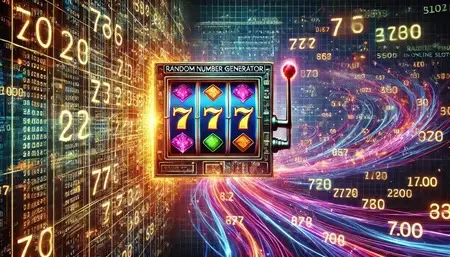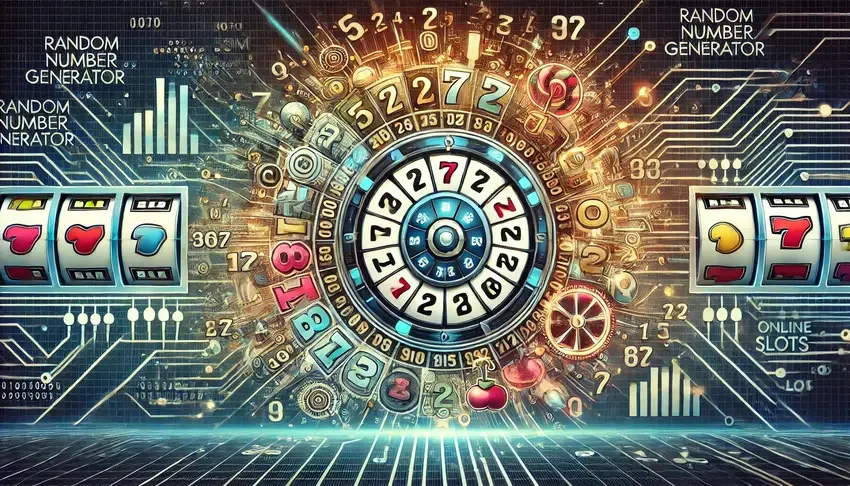
How Do Slots with Random Number Generators Work?
In the world of online gambling, slot machines are among the most popular games. They attract players with their vibrant graphics, exciting themes, and the possibility of winning big. But behind the flashing lights and spinning reels lies a complex system that ensures every spin is fair and unpredictable. This system is powered by a Random Number Generator (RNG). Understanding how RNGs work is crucial for players who want to grasp how slot outcomes are determined.
What is a Random Number Generator and How Does It Work in Slots?
A Random Number Generator (RNG) is a sophisticated algorithm designed to generate a sequence of numbers that lacks any predictable pattern. In the context of online slots, the RNG’s role is to ensure that each spin of the reels produces a random and unbiased result. This randomness is vital to maintaining the fairness of the game, ensuring that neither the casino nor the player can predict or influence the outcome.
RNGs used in slot machines typically operate continuously, even when the game is not being played. These algorithms produce thousands of numbers every second, each of which corresponds to a specific outcome on the slot machine’s reels. When a player presses the spin button, the RNG selects a number from its current sequence. This number is then translated into a combination of symbols on the reels, determining whether the player wins or loses.
How Does a Random Number Generator Determine the Results of Game Rounds?
The process by which an RNG determines the outcome of a spin is both simple and incredibly complex. When a player initiates a spin, the RNG is already in motion, cycling through numbers at lightning speed. The exact number generated at the moment the player presses the button corresponds to a specific combination of symbols.
For example, in a three-reel slot, the RNG might generate the number 137, which the slot’s software then maps to a particular set of symbols—say, a cherry, a bell, and a bar. Because the RNG produces numbers in a completely random sequence, each spin is independent of previous spins. This independence means that the outcome of one spin has no bearing on the next, reinforcing the element of chance in slot games.

How to Check the Reliability of the Random Number Generator in Online Slots?
Ensuring the reliability of RNGs is crucial for maintaining trust in online gambling platforms. To verify that an RNG is functioning correctly and fairly, several measures are put in place. Reputable online casinos have their RNGs regularly tested and certified by independent third-party auditing companies. These auditors conduct rigorous tests to confirm that the RNG produces results that are genuinely random and free from manipulation.
Players can often find information about a casino’s RNG testing on the website, usually in the form of certificates or seals of approval from organizations like eCOGRA (eCommerce Online Gaming Regulation and Assurance) or TST (Technical Systems Testing). These certifications are a good indicator that the RNG is reliable and that the games offered by the casino are fair.
Myths and Reality: Common Misconceptions About Random Number Generators
Despite the importance of RNGs in slot machines, there are many misconceptions about how they work. One common myth is that slots can be “due” for a win if they haven’t paid out in a while. However, because each spin is independent and random, the concept of a machine being “due” is a fallacy. The RNG ensures that each spin has the same odds of winning, regardless of what has happened before.
Another misconception is that players can influence the outcome by timing their spins perfectly. Since the RNG operates at such high speeds, it’s impossible to predict or control the exact moment when a winning number will be generated. Thus, strategies that claim to predict or influence slot outcomes are ineffective.
Random Number Generators are the heart of slot machines, ensuring that every spin is fair and unpredictable. Understanding how RNGs work can help players appreciate the fairness of slot games and dispel common myths. By choosing reputable casinos that use certified RNGs, players can enjoy online slots with confidence, knowing that their chances of winning are governed solely by chance.
